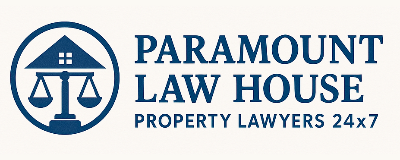Property Mortgage Advice: Make Informed Decisions
Property Mortgage Advice: When it comes to buying a home, the mortgage process can be overwhelming. However, understanding the essentials can make…
Property Mortgage Advice: When it comes to buying a home, the mortgage process can be overwhelming. However, understanding the essentials can make a significant difference. In this article, we will explore property mortgage advice to help you make informed decisions. Additionally, we will highlight the importance of working with qualified legal professionals like Paramount Law House, who provide 24/7 support as real estate advocates.
Property Mortgage Advice: Make Informed Decisions: Paramount Law House
Understanding Mortgages
First, it’s crucial to grasp what a mortgage is. Essentially, a mortgage is a loan specifically used to purchase real estate. In this arrangement, the property itself serves as collateral. Consequently, if you fail to repay the loan, the lender has the right to take possession of the property through a legal process known as foreclosure.
Moreover, there are different types of mortgages available. For instance, fixed-rate mortgages maintain a consistent interest rate throughout the life of the loan, while adjustable-rate mortgages may change after a specified period. Thus, it’s vital to evaluate which type suits your financial situation best.
The Importance of Credit Scores
In addition to understanding mortgages, recognizing the significance of credit scores is essential. Your credit score affects your ability to secure a mortgage and influences the interest rate you will receive. Generally, higher credit scores result in better loan terms. Therefore, before applying for a mortgage, take the time to check and, if necessary, improve your credit score.
Furthermore, lenders typically consider other financial factors. These include your income, debt-to-income ratio, and employment history. By understanding these components, you can better prepare for the mortgage application process.
Pre-Approval: A Crucial Step
Next, obtaining a mortgage pre-approval is an important step in your home-buying journey. Pre-approval involves a lender assessing your financial status and determining how much they are willing to lend you. This process not only helps you understand your budget but also demonstrates to sellers that you are a serious buyer.
Additionally, a pre-approval letter can streamline the buying process. Once you find a property you wish to purchase, you will be in a stronger position to make an offer. Thus, obtaining pre-approval is a critical move that can save you time and potential headaches.
Working with Real Estate Advocates
While navigating the mortgage process can be daunting, working with real estate advocates like Paramount Law House can ease the burden. Their team of property lawyers is available 24/7 to provide expert advice. Importantly, they can guide you through the legal intricacies of real estate transactions, ensuring you understand your rights and obligations.
Moreover, having an experienced attorney on your side can help you avoid common pitfalls. They can review mortgage documents, clarify legal terms, and negotiate terms on your behalf. Consequently, you can focus on finding your dream home while they handle the legal details.
Understanding Mortgage Terms
When applying for a mortgage, you will encounter various legal terms. Understanding these terms can help you make informed decisions. Here are a few key concepts to consider:
- Amortization: This refers to the process of paying off a loan over time through regular payments. Each payment consists of both principal and interest.
- Equity: Equity is the difference between the current market value of your home and the amount you owe on your mortgage. As you pay down your mortgage, your equity increases.
- Escrow: This is a neutral third-party account that holds funds for various expenses, such as property taxes and insurance, until they are due.
By familiarizing yourself with these terms, you will be better equipped to understand your mortgage agreement.
The Mortgage Application Process
The mortgage application process can seem complicated, but it typically follows a straightforward sequence. First, you will complete a loan application. This document includes personal information, financial details, and the specifics of the property you wish to purchase.
Once submitted, the lender will conduct a thorough assessment of your financial situation. This process, known as underwriting, may take several days. During underwriting, the lender verifies your information and evaluates your creditworthiness. Thus, patience is essential during this stage.
After underwriting is complete, the lender will issue a loan approval or denial. If approved, you will receive a loan estimate detailing the terms and costs associated with your mortgage. This document is crucial, as it allows you to compare offers from different lenders.
Closing the Deal
Once your loan is approved, you will enter the closing stage. Closing is the final step in the mortgage process, where you officially take ownership of the property. During this meeting, you will sign numerous documents, including the mortgage agreement and closing disclosure.
Importantly, be sure to review all documents carefully. If any terms seem unclear or unfavorable, do not hesitate to ask questions. Furthermore, having your property lawyer from Paramount Law House present can provide additional reassurance during this critical stage.
In addition, you will need to pay closing costs, which can include fees for appraisals, inspections, and title insurance. Understanding these costs ahead of time will help you budget accordingly.
Post-Purchase Considerations
After closing, your responsibilities do not end. You must continue to manage your mortgage payments and other financial obligations related to homeownership. Additionally, consider creating a budget to account for ongoing expenses such as property taxes, insurance, and maintenance.
Moreover, keeping track of your mortgage statements is vital. Regularly reviewing your mortgage account allows you to monitor your progress and stay on top of payments. If you encounter any difficulties, reach out to your lender or your property lawyer for guidance.
Refinancing Options
In certain situations, refinancing your mortgage may be advantageous. Refinancing involves replacing your existing mortgage with a new one, typically to secure a lower interest rate or change the loan terms. If interest rates decrease significantly, refinancing can save you money over time.
However, it’s essential to weigh the costs associated with refinancing. Closing costs and fees can add up, so make sure the potential savings justify the expense. Consulting with your real estate advocate at Paramount Law House can help you navigate this decision.
FAQs
A mortgage is a loan specifically used to purchase real estate, with the property itself serving as collateral. Borrowers repay the loan over time through regular payments, which include both principal and interest. If the borrower fails to repay, the lender can take possession of the property through foreclosure.
Your credit score plays a crucial role in determining your ability to secure a mortgage and the interest rate you will receive. Generally, a higher credit score can lead to better loan terms, while a lower score may result in higher interest rates or even denial of the loan.
Pre-approval involves a thorough assessment of your financial situation by a lender, leading to a specific loan amount being offered. In contrast, pre-qualification is a more informal estimate of how much you might be able to borrow based on self-reported information. Pre-approval is typically more reliable and gives you a stronger position when making offers on properties.
Closing costs are fees associated with finalizing a mortgage and purchasing a home. These can include appraisal fees, title insurance, and attorney fees, among others. Typically, closing costs range from 2% to 5% of the home’s purchase price, so it’s important to budget for these expenses.
Refinancing can provide several benefits, such as securing a lower interest rate, reducing monthly payments, or changing the loan term. However, it’s essential to weigh the costs of refinancing, like closing fees, against the potential savings to determine if it’s a financially sound decision. Consulting with a property lawyer can help you assess your options.
Conclusion
Navigating the mortgage process can be complex, but with the right information and support, you can make informed decisions. From understanding mortgage types to recognizing the importance of credit scores, every step matters. Additionally, partnering with real estate advocates like Paramount Law House ensures you have expert guidance throughout the process.
By following these guidelines and staying informed, you can confidently embark on your home-buying journey. Remember, knowledge is power, and being well-prepared will lead you to the best outcomes in your real estate endeavors.
Read More
- Property Partition through Will Probate: Legal Expertise
- Court Order Deeds: Hire the Best Estate Lawyers For Your Needs
- About Us: Paramount Law House – Property Lawyers in Chennai 24×7
- Contact Paramount Law House: Top Property Lawyers in Chennai
- Paramount Law House | Trusted Property Lawyers in Chennai for All Your Legal Needs
- Succession Laws Made Simple: Property Transfer Explained
- National Legal Services Authority (NALSA)






